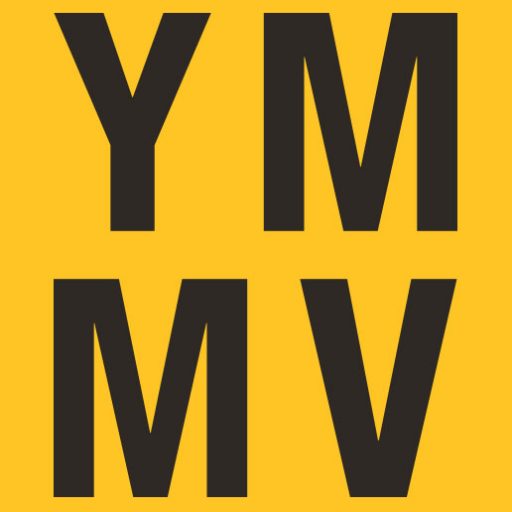Do You Need To Tell Your Credit Card Companies That You’re Traveling? (Updated July 2024)
Back in the day, I had a list of things I needed to do before going on a trip. Among other things, I had to print out the itinerary, pack the travel books and call the banks to let them know I was going to be using my cards in places I usually didn’t. This was especially important if I was traveling outside of the U.S. because the last thing I wanted to do when I was in a foreign country was pay for a phone call to the bank to unfreeze my account.
Times have changed. I don’t bring a stack of travel books with me on vacation anymore and my entire list of plans for the trip is stored on my iPhone. But do I still need to let the bank know I’ll be traveling? There’s a good chance I already booked the tickets using their card so knowing I’ll be visiting an area should already be in their computer system, right? Not exactly. Here’s what the banks say about informing them of your travels (and Spoiler Alert!: While some banks say it’s not necessary, most of them would like you to let them know about your travels)…
I’d actually gotten past the stage of alerting banks every time I traveled. Sure, for a huge multi-nation trip to the other side of the globe, I made sure to let them know. But for a weekend trip to Texas, I didn’t give it a second thought to just pull out my card. That was, until one night at Buc-ee’s in New Braunfels, TX. We had filled up our carts with Beaver Nuggets, various types of jerky, and more Buc-ee Beaver merchandise than you can imagine (Note from Sharon: But I’m not obsessed. Everyone has Buc-ee’s T-shirts in a dozen different colors, right?). I pulled out my Chase card from my wallet and gave it to the cashier. Transaction Declined. Oh, I guess there’s a problem with the bank; here’s my other Chase card. Declined. Hey Sharon, what about your Chase card? Declined. Uh-oh.
My Discover card eventually worked to pay for our stash, but this was our first night in town. We had plenty of travel expenses (hotel, rental car, dining) to go on the trip, and I wanted the bonus the Chase cards provided for those categories. When we got back to the hotel, it took a lengthy call to the Chase security department to unfreeze my cards, and then Sharon had to go through the same procedure for her card. Not how I wanted to start our vacation.
Since then, I have spent a few minutes online before each trip to alert the banks about our upcoming travels. Here’s the way to let each bank know of your travels:
American Express
Amex says they don’t need to know about your upcoming trips. I’ve even had them proactively write me (if I paid for a plane ticket with their card) and tell me that their system sees I have a trip coming up to XXXXXX and to feel sure that I’ll have no problems using my AMEX card while out of town.
Here’s what they say on their website:
We use industry-leading fraud detection capabilities that help us recognize when our Card Members are traveling, so you don’t need to notify us before you travel. We recommend:
-
Keeping your contact information updated in case we need to contact you while you’re away
-
Downloading the Amex mobile app to conveniently manage your account on the go
If you have any doubt that AMEX’s systems are keeping track of you, here’s an email we received after checking into our hotel in Frankfurt.
Barclays
When you log into your Barclays account, click on the Services tab. From there, click on My Travel:
That will take you to a page where you can let Barclays know where you’ll be traveling and for which dates.
Chase
After my previous problems with Chase, I always notified them when we’d travel at the Chase Travel Notification website. However, they’ve since removed that page from their website.
Citi
To alert Citi about your travels, log into your account and go to the Travel Services tab under “Services.”
Once there, just select which card you’ll be using and add a travel notice by entering the dates and location of your trip
Discover
To alert Discover about your upcoming trip, you need to log into your account and click on the “Register Travel” link
That will take you to the page where you can enter your trip details.
Other Banks
Most other banks have links on their web pages with instructions on how to put a travel notification onto your account. Bank of America and US Bank let you enter the information on their websites or through their mobile apps.
Like American Express and Chase, Capital One and Wells Fargo don’t have a place on their websites to enter a travel notice but instead tell you that it’s no longer necessary to do so.
Final Thoughts
We’ve had our troubles with cards being declined, and I can also tell you, from working in Orlando, that people have their cards declined ALL THE TIME when trying to use them for purchases outside of their normal spending patterns. The worst story came from one of our guides on an Adventures By Disney trip, who told us that while she was outside the country, her account was locked, and the bank required that she go to a branch to get everything resolved. Unfortunately, she was 7,000 miles away from the nearest bank location and needed to wait until getting back to the U.S. to unfreeze the account and have access to her money.
Banks use computers to flag fraudulent purchases. They use your previous purchases to help them determine if a charge is typical or unusual. If you have the ability, it’s a good idea to take a few minutes to let the bank know when you’re planning a visit outside the country. It won’t totally remove the chance you’ll get a notice about irregular spending, but at least you can let them know you alerted them of your trip in advance if you have to call the bank when they freeze your account.
Want to comment on this post? Great! Read this first to help ensure it gets approved.
Want to sponsor a post, write something for Your Mileage May Vary, or put ads on our site? Click here for more info.
Like this post? Please share it! We have plenty more just like it and would love it if you decided to hang around and sign up to get emailed notifications of when we post.
Whether you’ve read our articles before or this is the first time you’re stopping by, we’re really glad you’re here and hope you come back to visit again!
This post first appeared on Your Mileage May Vary
Join our mailing list to receive the latest news and updates from our team.

